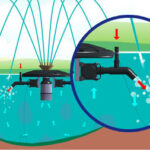In the electrical trade, risks abound, making safety training indispensable. NFPA 70E certification provides electricians with the knowledge to mitigate hazards. This prestigious certification covers hazard identification, protective equipment, safe work practices, and emergency response.
Obtaining NFPA 70E certification benefits electricians through enhanced safety skills, professional credibility, career advancement, and more. Let’s explore why this certification is so vital for electricians seeking to prevent accidents and excel professionally.
1. Enhanced Safety Knowledge
Earning NFPA 70E certification requires mastering extensive safety protocols for electrical work. Certified electricians gain an in-depth understanding of recognizing hazards, using proper protective equipment, following safe work practices, and responding to emergencies. This unparalleled safety knowledge is invaluable for preventing workplace accidents and injuries.
2. Compliance with Regulatory Standards
The NFPA 70E is recognized by OSHA, NEC, IEEE, and other leading regulatory bodies as the definitive code for electrical safety. This industry-respected certification demonstrates an electrician’s commitment to the latest safety regulations and compliance standards. Staying current through recertification also shows dedication to ongoing compliance. This helps electricians avoid penalties for non-compliance while reassuring employers and clients of their safety diligence.
3. Increased Professional Credibility
In today’s culture focused on safety and liability, the NFPA 70E certification sets electricians apart by highlighting their mastery of best practices and vigilance. Being certified adds prestige and professionalism to an electrician’s reputation. Prospective employers, colleagues, and customers recognize NFPA 70E as a sign of proactive safety knowledge and commitment. Especially in inherently hazardous industries, certification boosts an electrician’s reputation and improves hiring potential.
4. Better Risk Management
The NFPA 70E certification provides a comprehensive framework for managing electrical hazards proactively. Certified electricians are trained to pinpoint risks, implement controls, conduct advanced audits and inspections, analyze hazards quantitatively, and reduce overall risk. Their skilled risk management practices help avoid accidents, minimize liability, reduce insurance costs, and promote operational efficiency for employers.
5. Opportunities for Career Advancement
Earning the NFPA 70E can elevate certified electricians into leadership and supervisory roles managing teams, programs, or entire departments. This certification’s recognized expertise and professionalism provide a strategic advantage for promotion into safety management positions. For electricians looking to advance their careers, NFPA 70E certification signals they are qualified for greater responsibilities and safety leadership roles.
6. Contribution to A Safer Workplace Culture
Earning the prestigious NFPA 70E certification requires a substantial investment in initial training and ongoing education to stay current. But the payoff for electricians in broadened skills, safety expertise, and professional development is immense. Committing to regular recertification demonstrates admirable dedication to lifelong learning and keeping their capabilities relevant. The certification reflects the continual growth mindset needed to remain effective over the long haul.
Conclusion
In conclusion, NFPA 70E certification offers electricians immense value across all facets of their careers. This credential provides a strategic edge for success and leadership in the electrical field, from boosting safety knowledge to opening advancement opportunities. For electricians dedicated to protecting themselves and others from harm, pursuing NFPA 70E certification should be a top priority. This prestigious designation signifies an electrician’s commitment to safety excellence and readiness to thrive in even the most hazardous conditions.














